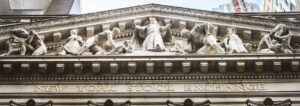In 1975, the “pet rock” was all the rage. Marketed as live pets, everyone wanted to have their very one pet rock, which retailed for around $4.00 each. Fast forward to 2021 and you can now buy EtherRock, a digital rock companion, which just sold for US $1.3 million. Both the pet rocks from the 1970s and the EtherRock are capable of giving their owners about the same level of companionship, but the latter happens to be an NFT. So what is an NFT? And are NFTs a good investment? Here’s everything you need to know about NFT investing.
What is an NFT?
NFTs, or non-fungible tokens, are cryptographic tokens. They are very similar to a cryptocurrency, in that transactions are recorded on a blockchain. Because these transactions are recorded on the blockchain, they can be used to prove the authenticity, ownership, and provenance of anything – physical or digital – such as artwork, collectable cards, or real estate. “Non-fungible” simply means that the token is unique and cannot be duplicated or swapped for anything else.
These tokens are basically a receipt for a collectable item. When someone buys digital artwork that is authenticated by an NFT, they are purchasing a digitally authenticated note stating that there is only one owner. Anybody can download a copy of the file or link relating to whatever asset the NFT is tokenizing, but only the NFT owner holds the contract stating their ownership rights. The NFT declares you as the official owner. NFTs were introduced to solve the problem of how to create scarcity for an object that can easily be reproduced. Unlike a traditional painting or sculpture, digital artwork is extremely easy to duplicate.
Why do we need NFTs?
As you can imagine, counterfeits are a huge problem in the art world. Investors are often concerned that they might be buying a fake. This is where the blockchain concept comes into play. Through utilizing the blockchain you can verify that yes, this NFT was in fact created on this date, at this time, by this person and it is really the only one available. The entire system will confirm its validity.
NFTs as smart contracts
NFTs can also act as smart contracts. The NFT gives the originator of the token a cut of future sales. In the case of Beeple’s painting, which sold for $69 million at auction, every additional time it is sold, Beeple will receive a 10% cut. This can help artists secure a reliable source of income and participate in the future appreciation of their original work. Generally speaking, newer artist have more success later on in their careers, when they gain notoriety, thus increasing the value of their earlier works. Now, with NFTs, artists will be able to participate in the future appreciation of those original pieces.
Are NFTs a good investment?
Despite the eye-watering sums changing hands in headline-grabbing transactions, NFTs are still very much a niche product, and may well turn out to be a craze – kind of like a digital version of Holland’s Tulipmania in the 17th century. Token holders could end up sitting on a surplus of NFTs with little buying interest if there is a decrease in demand, in the same way, numerous bubbles have burst over the last several years.
However, as with the wider use of the blockchain, it does seem clear that because of NFTs’ usefulness as records of ownership, they could well be here to stay in one form or another.







